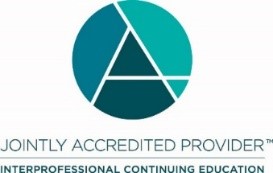Overview
As we developed our SPOTS session for pediatric patients we discovered that thousands of children every year are still prescribed codeine and tramadol, despite black box warnings — absolute contraindications — from the Food and Drug Administration. So we made a short video — just 5 minutes — describing the reasons why these medications aren’t good for children and what good alternatives are.
You can watch the video here, or for 0.5 hours of free continuing medical education credit, click here. Please watch and share with anyone you know who prescribes opioids to children.
Credits:
Created by: Jonathan E. Kohler, MD, MA, FACS
Produced by: Rebekah Olson, BS
Research and Data Analysis by: Randi Cartmill, MS
Content Advisors: Benjamin Walker, MD, Timothy Casias, MD, Jared Hylton, MD, Benjamin Eithun, RN, Tanvee Thakur, MS, B.Pharm, Elle Kalbfell, MD, Addi Faerber, PhD
Video Production by: TruScribe
Accreditation Statement 
In support of improving patient care, the University of Wisconsin–Madison ICEP is jointly accredited by the Accreditation Council for Continuing Medical Education (ACCME), the Accreditation Council for Pharmacy Education (ACPE), and the American Nurses Credentialing Center (ANCC) to provide continuing education for the healthcare team.
Credit Designation Statements
Accreditation Council for Pharmacy Education (ACPE)
A maximum of 0.5 hours of knowledge-based CE credit can be earned by successfully completing this live activity. Pharmacists should claim only the credit commensurate with the extent of their participation in the activity. CE credit information, based on verification of live attendance and completion of the program assessment and evaluation, will be provided to NABP within 60 days after the activity completion.
2019 Universal Activity Number (UAN) JA0000358-0000-19-104-H01-P
2020 Universal Activity Number (UAN) JA0000358-0000-20-027-H01-P
American Medical Association (AMA)
The University of Wisconsin–Madison ICEP designates this live activity for a maximum of 0.5 AMA PRA Category 1 Credits™. Physicians should claim only the credit commensurate with the extent of their participation in the activity.
American Nurses Credentialing Center (ANCC)
The University of Wisconsin–Madison ICEP designates this live activity for a maximum of 0.5 ANCC contact hours, 0.5 of which are eligible for ANCC pharmacotherapeutic contact hours.
The University of Wisconsin–Madison School of Nursing is Iowa Board of Nursing provider 350.
Continuing Education Units
The University of Wisconsin–Madison, as a member of the University Continuing Education Association (UCEA), authorizes this program for 0.05 continuing education units (CEUs) or 0.5 hours.
Maintenance of Certification/Lifelong Learning and Self-Assessment
By participating in this activity, the learner grants permission for ICEP to share completion information with the ACCME on the learner’s behalf.
American Board of Pediatrics MOC Lifelong Learning and Self-Assessment Credit
Successful completion of this CME activity, which includes participation in the activity and individual assessment of and feedback to the learner, enables the learner to earn up to 0.5 MOC points in the American Board of Pediatrics’ (ABP) Maintenance of Certification (MOC) program. It is the CME activity provider’s responsibility to submit learner completion information to ACCME for the purpose of granting ABP MOC credit.
American Board of Anesthesia MOCA 2.0 Lifelong Learning and Self-Assessment Credit
This activity contributes to the CME component of the American Board of Anesthesiology’s redesigned Maintenance of Certification in AnesthesiologyTM (MOCA®) program, known as MOCA 2.0®. Please consult the ABA website, www.theABA.org, for a list of all MOCA 2.0 requirements.
American Board of Internal Medicine MOC Credit
Successful completion of this CME activity, which includes participation in the evaluation component, enables the participant to earn up to 0.5 Medical Knowledge MOC points in the American Board of Internal Medicine’s (ABIM) Maintenance of Certification (MOC) program. Participants will earn MOC points equivalent to the amount of CME credits claimed for the activity. It is the CME activity provider’s responsibility to submit participant completion information to ACCME for the purpose of granting ABIM MOC credit.
American Board of Otolaryngology – Head and Neck Surgery Lifelong Learning and Self-Assessment Credit
Successful completion of this CME activity, which includes participation in the evaluation component, enables the participant to earn their required annual part II self-assessment credit in the American Board of Otolaryngology – Head and Neck Surgery’s Continuing Certification program (formerly known as MOC). It is the CME activity provider’s responsibility to submit participant completion information to ACCME for the purpose of recognizing participation.
American Board of Surgery Lifelong Learning and Self-Assessment Credit
Successful completion of this CME activity, which includes participation in the evaluation component, enables the participant to earn up to 0.5 Medical Knowledge MOC points in the American Board of Surgery’s (ABS) Maintenance of Certification (MOC) program. Participants will earn MOC points equivalent to the amount of CME credits claimed for the activity. It is the CME activity provider’s responsibility to submit participant completion information to ACCME for the purpose of granting ABS MOC credit.

